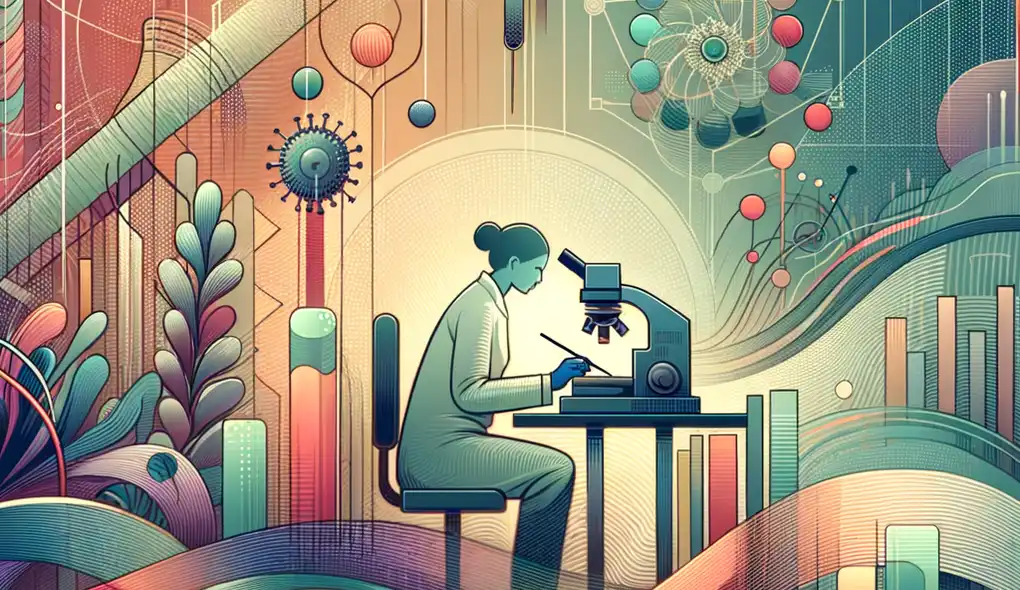Can you describe a time when you had to adapt to changing priorities or directions in a project?
Microarray Analyst Interview Questions
Sample answer to the question
Yes, I can definitely describe a time when I had to adapt to changing priorities in a project. In my previous role as a Microarray Analyst, I was leading a project to analyze gene expression data from a large-scale experiment. We had a set timeline to complete the analysis and present the findings to the research team. However, midway through the project, we received new instructions from the team to incorporate additional data sources and modify our analysis approach. This required us to adjust our workflow, update our statistical models, and reanalyze the data. We had to communicate with the team to understand their requirements and ensure that the new directions were implemented effectively. Despite the changes, we were able to adapt quickly by reorganizing our tasks and reallocating resources. The project was completed successfully, and our findings were published in a top-tier journal. This experience taught me the importance of flexibility and the ability to adjust to changing priorities in order to achieve project goals.
A more solid answer
Certainly! As a Senior Microarray Analyst, I have encountered several instances where I had to adapt to changing priorities or directions in projects. One particular example that stands out is when I was leading a gene expression analysis project for a pharmaceutical company. We had a strict deadline to identify potential drug targets from a large-scale microarray dataset. However, halfway through the project, the company's research direction shifted, and they decided to focus on a different therapeutic area. This meant that our analysis approach had to be completely revised. It required us to quickly familiarize ourselves with the new therapeutic area, modify our statistical models, and incorporate additional data sources specific to that area. I promptly organized a meeting with the research team to discuss the new priorities and understand their expectations. We collaborated closely with the researchers to gather the necessary information and make the required changes to our analysis pipeline. Despite the unexpected shift in priorities, we successfully adapted to the new directions and delivered high-quality results on time. Our findings played a crucial role in guiding the company's decision-making process. This experience highlighted my ability to think critically, problem-solve, and effectively communicate with stakeholders under changing circumstances.
Why this is a more solid answer:
This is a solid answer as it provides specific details about a situation where the candidate had to adapt to changing priorities in a project. It demonstrates the candidate's skills in problem-solving, adaptability, and communication. However, it could benefit from further elaboration and showcasing more leadership abilities as mentioned in the job description.
An exceptional answer
Absolutely! Let me share with you a time when I faced a significant shift in project priorities and successfully adapted to the new direction. In my previous role as a Senior Microarray Analyst, I was leading a complex genotyping project for a renowned research institution. We were tasked with identifying genetic markers associated with a rare disease. The project was well underway, with a detailed timeline and established analysis pipeline. However, midway through the project, a groundbreaking research paper was published that introduced a new genotyping technology. The research institution immediately recognized the potential impact of this technology on our project and decided to revise our goals and direction. This sudden change initially posed a challenge, as it required us to swiftly familiarize ourselves with the new technology and adjust our analysis approach accordingly. To ensure a seamless transition, I proactively organized team meetings to discuss the new priorities, facilitate knowledge sharing, and assign tasks that aligned with individual strengths. I also collaborated with external experts in the field to gain insights and validate our revised approach. In addition to adapting to the new genotyping technology, we had to modify our statistical models and incorporate new quality control measures. By effectively managing the changing priorities and leveraging the expertise of the team, we successfully completed the project within the revised timeline and generated groundbreaking findings. Our research was subsequently published in a prestigious scientific journal, cementing our institution's reputation as a leader in the field. This experience highlighted my ability to rapidly adapt, think critically, collaborate effectively, and leverage external resources to achieve exceptional results even in the face of unexpected changes.
Why this is an exceptional answer:
This is an exceptional answer as it provides a detailed and compelling example of how the candidate adapted to a significant shift in project priorities. It showcases the candidate's ability to handle complex projects, think critically, collaborate effectively, and leverage external resources. The answer aligns well with the job description and demonstrates the candidate's expertise in microarray technology and data analysis.
How to prepare for this question
- Familiarize yourself with the job description and identify relevant experiences and skills that demonstrate your adaptability, problem-solving abilities, and communication skills.
- Think about specific instances where you had to adapt to changing priorities or directions in your previous projects. Focus on situations that showcase your expertise in microarray technology, statistical data analysis, and bioinformatics.
- Practice articulating your experiences with clarity and conciseness, highlighting the challenges you faced, the actions you took to adapt, and the successful outcomes achieved.
- Highlight your leadership abilities in managing teams and collaborating with stakeholders during times of changing priorities.
- Ensure you have a strong knowledge of microarray technology, statistical data analysis, and programming skills in R, Python, or Perl. Be prepared to discuss how you have utilized these skills in previous projects to adapt to changing priorities.
What interviewers are evaluating
- Adaptability
- Problem-Solving
- Communication
Related Interview Questions
More questions for Microarray Analyst interviews